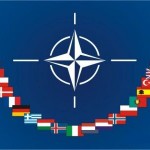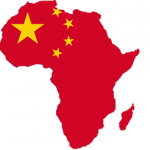(C) Kapok Tree Diplomacy. 2010. All rights reserved. Jeff Dwiggins, author
Is international relations (IR) a science? Well, I guess it depends on what science we’re talking about – physical, biological, social, economic, political? When I hear the term “science” I still tend to think of what I’m most familiar with, and that is the scientific method used by the natural sciences. Russett and Starr attempt to modify the social science of IR to follow the scientific method using some general general steps (2004). I would tweak those steps as follows along the natural science format: pose the question, observe, research and analyze, form hypothesis, experiment, gather more data, analyze results, interpret results, form conclusion, retest (“Steps of the Scientific Method”, n.d.).
Can we apply this same scientific method to international relations? Yes, but obtaining the level of accuracy in international relations typically required in biology or physics is not really possible. Human behavior is not as predictable as universal laws and the uniformity of nature. The current rend in IR is to try and make it as predictable as possible by crunching numbers and trying to explain every outcome through quantitative analysis. But state and non-state actors do not always act rationally, nor do they always operate with perfect information and single-minded purpose. “The heart is deceitful above all things and beyond cure. Who can understand it?” (Jer. 17:9).
Russett and Starr talk about science being about “comparison, contingency and probability” (p.19) in order to “define, label and classify” (p. 19). They point out that the analysis should be done in a systematic way in order to make theoretical “generalizations” (p. 20). They do admit the role that assumptions (p. 22), values (p. 26) and uncertainty (p. 19) can play in the overall scientific process as it relates to international relations. That’s good. Here’s a few reasons why.
The facts do not always speak for themselves. In tackling the controversy and diverse theories over the assassination of JFK, the late Christian theologian Greg Bahnsen brilliantly points out that, “What a person will take to be a “fact” and how that fact is interpreted and related to other beliefs is not determined alone by the perceptions or observations (or observation-reports) which a person has. His thinking will be guided by various assumptions or controlling presuppositions” (1992).
What one takes to be factual, as well as the interpretation of accepted facts, will be governed by his underlying philosophy of fact – that is by his “pervasive, basic, value-oriented, possibility determining, probability-rating, sometimes religiously motivated presuppositions” (Bahnsen).
The science of international relations is viewed through the value-oriented assumptions of the person doing the analysis. That frame of reference or lens may be realist, liberal, Marxist, constructionist or some combination thereof. It doesn’t mean the conclusions aren’t scientific to some extent, but we do have to be realistic about their precision and highly scrutinize the underlying values and assumptions that went into the observation and research of pertinent facts in the first place.
If our standard is that international relations (IR) must be able to be categorized, defined, labeled and classified, and that the scientific method may be usefully applied to it, then I would agree that it may share some qualities with the scientific method, though not on the same level as the natural sciences. Thus, IR is not an exact science despite the claims of many social scientists and academics who try to convince us otherwise.




